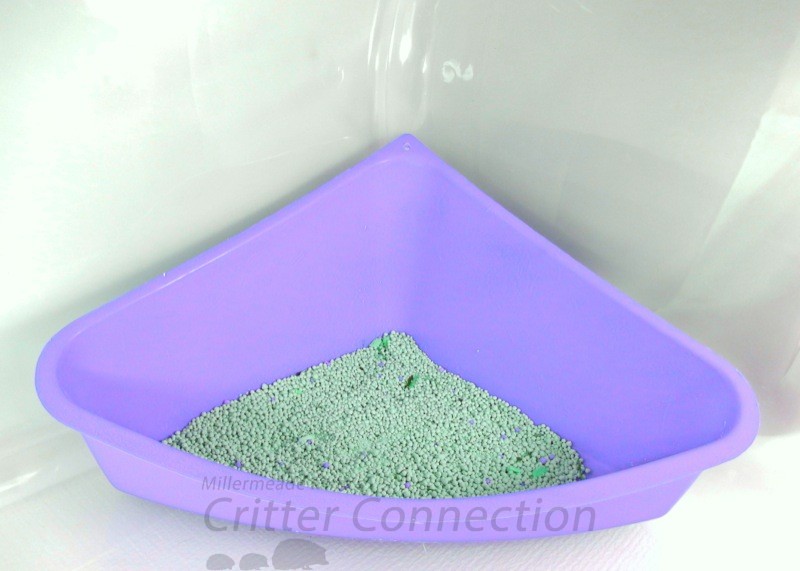Last Updated on November 1, 2022.
- Overview
- Bowel movements and elimination habits are a key indication of the digestive and gastrointestinal health of your hedgehog.
- Hedgehogs have a simple stomach and no cecum
- A cecum is where food would ferment
- The colon is smooth and non-complex
- Gut time for a hedgehog ranges 12-16 hours
- A normal hedgehog feces is typically the shape and consistency of dog or cat feces but about the size of toothpaste.
- Typical feces are brown in color but shades medium to dark brown color.
- Healthy color can vary depending on type and quality of food.
- Dried waste material looks almost black when dry.
Diarrhea, Loose Stool, and Green Stool
Not Caused by Clostridium
- Symptoms
- Watery fecal material
- Loose green stool
- Can vary in
- Color
- Texture
- Consistency
- Straining to eliminate
- Dehydration can occur
- Can vary in
- Cause
- Changes in Food that moves too quick through the digestive tract
- Bile is left in the food, which gives it its green color.
- Bile would normally break down during digestion.
- Diet changes or food sensitivities to:
- Dry food
- Water
- Treats
- Ingestion of milk or other dairy products
- Cold or frozen food
- Ingestion of bedding material
- Certain antibiotics can cause this as well
- Environmental causes
- Heat
- Too much handling
- Travel
- Illnesses or infection
- Bacteria such as Salmonella
- Parasites
- Other Pathogens in the stool
- Severity
- Normal formed stool with a tinge of green
- Mild
- Common when babies go to new homes as described above
- Keep food consistent during adjustment
- Use bottled or filtered water
- No introduction of new food until after an adjustment period of at least a week
- Mild
- Normal formed stool with a tinge of green
- Treatment
- Veterinarian may prescribe antidiarrheals to treat the symptoms
- Stress induced will clear up on its own in a few days
- Determine offending foods and avoid them
- A probiotic such an Ben-Bac may help
- An antibiotic from a veterinarian may be required if the green stools persist, worsen, or your hedgehog quits eating or drinking and becomes dehydrated.
Blood in Stools
- Symptom
- The appearance of red mucous in the stool could indicate blood in the stool.
- Blood can appear bright red or as a dark “tar” in the stool.
- Cause
- One cause of blood in the stool is clostridium.
- Treatment
- You should take your hedgehog to the vet right away.
Dehydration
- Symptoms
- Listless, the gums are tacky when touched, or the skin doesn’t snap back when gently pulled up
- Skin tenting or decrease in elasticity
- Mucous membranes can become “tacky”
- Cause
- Water bottles becoming clogged
- It is often secondary to another issue
- Most dehydrated animals will not eat
- Treatment
- Watermelon juice or mixture of half Pedialyte and half bottled water is good for animals that are not severely dehydrated.
- No eating or drinking warrants a trip to the veterinarian to have fluids administered subcutaneously and to determine the cause.
Constipation
- Symptoms
- Dark, hard, and smaller droppings in fewer numbers
- Straining while trying to eliminate
- Urinary problems
- Causes
- Stress
- Food insensitive
- Ingestion of bedding
- Mild dehydration
- Treatment
- Swim in a few inches of warm water
- Yogurt containing active cultures of Lactobacillus bulgaricus, Streptococcus thermophilus and bifidobacterium helps with digestion
- Unseasoned pumpkin mixed with water and fed orally (by syringe tip with no needle)
- If constipation persists for 48 hours or more, a trip to a vet is warranted
- Long-term constipation could be a blockage.
- Prevention
-
- Live mealworms in place of dead mealworms because live mealworms have a softer exoskeleton that is easier to pass next to their dead counterparts.
Obesity
- Symptom
- The hedgehog can no longer curl into a ball due to fat
- Double chins when viewed from ball position
- Fat rather than muscular legs
- Rolls of fat under the armpits
- Yellow tint to skin under the legs
- Cause
- Overeating of foods high in fat and protein (examples: wax worms, mealworms, and superworms)
- Lack of exercise
- Treatment
- Untreated obesity can lead to an early death due to other health complications
- Extra caution is required in weight reduction because a drastic weight loss can cause hepatic lipidosis (fatty liver disease)
- Source: google images
- Reduce the calories in the diet by switching to a lower fat formula
- Hills Science Diet R/D is a reduction diet food whose primary ingredient is non-process able fiber from peanut hulls
- IVD Select Care is similar to R/D but it has processable fiber as a primary content (Klein)
- A wheel can provide stimulation; however, a lazy hedgehog might not use it
- Encourage foraging behaviors by hiding food around the cage
Anorexia (lack of appetite)
- Symptom
- Loss of appetite
- Weight loss
- Cause
- New food
- Introducing new food gradually instead of cold turkey will help the hedgehog adjust to a new regiment
- Change in routine
- The temperature is too cold
- Hedgehog falls into a false hibernation
- Dehydration
- Injured or ill
- New food
- Treatment
- Check the temperature
- Offer the hedgehog treats as an incentive to eat
- Chicken baby food without onion or onion powder or crumbled chicken baby food sticks
- High in protein and fat
- Add acidophilus powder to the food as this will aid digestion
Nausea
- Symptoms
- Excess salivation
- Vomiting
- Cause
- Food sensitivity
- Ingestion of toxic material
- Motion sickness
- Treatment
- Use a dab of pepto bismal (0.01cc of a 1cc syringe) onto their tongues
- See a veterinarian if vomiting does not stop
Clostridium (bacterium that divides too rapidly in the intestine)
- Symptoms
- Characterized by runny, green, smelly stool
- May contain mucous in the stool
- Diarrhea
- Cause
- Stress
- Change in environment or food
- Compromised immune system
- Poor living conditions
- Over stimulation (handling, traveling, exposure to other hedgehogs)
- Some hedgehogs are more sensitive to others about changes
- Stress
- Treatment
- Small amounts of yogurt with active cultures or probiotics can help replenish the natural bacteria flora
VIDEO.: Dehydration Tip
VIDEO.: Quick Tips to Avoid Salmonella
References:
Klein, Tom; Hedgehog Drug Therapies; E. Hilliard Vet Clinic, Columbus, OH. 614-876-7762
Love, Kirsten, DVM.; Formerly of Animal Hospital of Polaris; Columbus, OH






